- Home
- Nathaniel Hawthorne
Main Street Page 5
Main Street Read online
Page 5
inevitably shines through, and makes thestartled community aware that these men are not as they themselvesare,--not brethren nor neighbors of their thought. Forthwith, it is asif an earthquake rumbled through the town, making its vibrations felt atevery hearthstone, and especially causing the spire of the meeting-houseto totter. The Quakers have come. We are in peril! See! they trampleupon our wise and well-established laws in the person of our chiefmagistrate; for Governor Endicott is passing, now an aged man, anddignified with long habits of authority,--and not one of the irreverentvagabonds has moved his bat. Did you note the ominous frown of thewhite-bearded Puritan governor, as he turned himself about, and, in hisanger, half uplifted the staff that has become a needful support to hisold age? Here comes old Mr. Norris, our venerable minister. Will theydoff their hats, and pay reverence to him? No: their hats stick fastto their ungracious heads, as if they grew there; and--impious varletsthat they are, and worse than the heathen Indians!--they eye our reverendpastor with a peculiar scorn, distrust, unbelief, and utter denial of hissanctified pretensions, of which he himself immediately becomes conscious;the more bitterly conscious, as he never knew nor dreamed of the likebefore.
But look yonder! Can we believe our eyes? A Quaker woman, clad insackcloth, and with ashes on her head, has mounted the steps of themeeting-house. She addresses the people in a wild, shrill voice,--wildand shrill it must be to suit such a figure,--which makes them trembleand turn pale, although they crowd open-mouthed to hear her. She is boldagainst established authority; she denounces the priest and hissteeple-house. Many of her hearers are appalled; some weep; and otherslisten with a rapt attention, as if a living truth had now, for the firsttime, forced its way through the crust of habit, reached their hearts, andawakened them to life. This matter must be looked to; else we havebrought our faith across the seas with us in vain; and it had been betterthat the old forest were still standing here, waving its tangled boughsand murmuring to the sky out of its desolate recesses, instead of thisgoodly street, if such blasphemies be spoken in it.
So thought the old Puritans. What was their mode of action may be partlyjudged from the spectacles which now pass before your eyes. JoshuaBuffum is standing in the pillory. Cassandra Southwick is led to prison.And there a woman, it is Ann Coleman,--naked from the waist upward, andbound to the tail of a cart, is dragged through the Main Street at thepace of a brisk walk, while the constable follows with a whip of knottedcords. A strong-armed fellow is that constable; and each time that heflourishes his lash in the air, you see a frown wrinkling and twistinghis brow, and, at the same instant, a smile upon his lips. He loves hisbusiness, faithful officer that he is, and puts his soul into everystroke, zealous to fulfil the injunction of Major Hawthorne's warrant, inthe spirit and to the letter. There came down a stroke that has drawnblood! Ten such stripes are to be given in Salem, ten in Boston, and tenin Dedham; and, with those thirty stripes of blood upon her, she is to bedriven into the forest. The crimson trail goes wavering along the MainStreet; but Heaven grant that, as the rain of so many years has wept uponit, time after time, and washed it all away, so there may have been a dewof mercy, to cleanse this cruel blood-stain out of the record of thepersecutor's life!
Pass on, thou spectral constable, and betake thee to thine own place oftorment. Meanwhile, by the silent operation of the mechanism behind thescenes, a considerable space of time would seem to have lapsed over thestreet. The older dwellings now begin to look weather-beaten, throughthe effect of the many eastern storms that have moistened their unpaintedshingles and clapboards, for not less than forty years. Such is the agewe would assign to the town, judging by the aspect of John Massey, thefirst town-born child, whom his neighbors now call Goodman Massey, andwhom we see yonder, a grave, almost autumnal-looking man, with childrenof his own about him. To the patriarchs of the settlement, no doubt, theMain Street is still but an affair of yesterday, hardly more antique,even if destined to be more permanent, than a path shovelled through thesnow. But to the middle-aged and elderly men who came hither inchildhood or early youth, it presents the aspect of a long andwell-established work, on which they have expended the strength and ardorof their life. And the younger people, native to the street, whoseearliest recollections are of creeping over the paternal threshold, androlling on the grassy margin of the track, look at it as one of theperdurable things of our mortal state,--as old as the hills of the greatpasture, or the headland at the harbor's mouth. Their fathers andgrandsires tell them how, within a few years past, the forest stood here,with but a lonely track beneath its tangled shade. Vain legend! Theycannot make it true and real to their conceptions. With them, moreover,the Main Street is a street indeed, worthy to hold its way with thethronged and stately avenues of cities beyond the sea. The old Puritanstell them of the crowds that hurry along Cheapside and Fleet Street andthe Strand, and of the rush of tumultuous life at Temple Bar. Theydescribe London Bridge, itself a street, with a row of houses on each side.They speak of the vast structure of the Tower, and the solemn grandeur ofWestminster Abbey. The children listen, and still inquire if the streetsof London are longer and broader than the one before their father's door;if the Tower is bigger than the jail in Prison Lane; if the old Abbeywill hold a larger congregation than our meeting-house. Nothingimpresses them, except their own experience.
It seems all a fable, too, that wolves have ever prowled here; and notless so, that the Squaw Sachem, and the Sagamore her son, once ruled overthis region, and treated as sovereign potentates with the Englishsettlers, then so few and storm-beaten, now so powerful. There standsome school-boys, you observe, in a little group around a drunken Indian,himself a prince of the Squaw Sachem's lineage. He brought hither somebeaver-skins for sale, and has already swallowed the larger portion oftheir price, in deadly draughts of firewater. Is there not a touch ofpathos in that picture? and does it not go far towards telling the wholestory of the vast growth and prosperity of one race, and the fated decayof another?--the children of the stranger making game of the great SquawSachem's grandson!
But the whole race of red men have not vanished with that wild princessand her posterity. This march of soldiers along the street betokens thebreaking out of King Philip's war; and these young men, the flower ofEssex, are on their way to defend the villages on the Connecticut; where,at Bloody Brook, a terrible blow shall be smitten, and hardly one of thatgallant band be left alive. And there, at that stately mansion, with itsthree peaks in front, and its two little peaked towers, one on eitherside of the door, we see brave Captain Gardner issuing forth, clad in hisembroidered buff-coat, and his plumed cap upon his head. His trustysword, in its steel scabbard, strikes clanking on the doorstep. See howthe people throng to their doors and windows, as the cavalier rides past,reining his mettled steed so gallantly, and looking so like the very souland emblem of martial achievement,--destined, too, to meet a warrior'sfate, at the desperate assault on the fortress of the Narragansetts!
"The mettled steed looks like a pig," interrupts the critic, "and CaptainGardner himself like the Devil, though a very tame one, andon a most diminutive scale."
"Sir, sir!" cries the persecuted showman, losing all patience,--for,indeed, he had particularly prided himself on these figures of CaptainGardner and his horse,--"I see that there is no hope of pleasing you.Pray, sir, do me the favor to take back your money, and withdraw!"
"Not I!" answers the unconscionable critic. "I am just beginning to getinterested in the matter. Come! turn your crank, and grind out a fewmore of these fooleries!"
The showman rubs his brow impulsively, whisks the little rod with whichhe points out the notabilities of the scene, but, finally, with theinevitable acquiescence of all public servants, resumes his composure andgoes on.
Pass onward, onward, Time! Build up new houses here, and tear down thyworks of yesterday, that have already the rusty moss upon them! Summonforth the minister to the abode of the young maiden, and bid him uniteher to the joyful bridegroom! Let the youthful par
ents carry theirfirst-born to the meeting-house, to receive the baptismal rite! Knock atthe door, whence the sable line of the funeral is next to issue! Provideother successive generations of men, to trade, talk, quarrel, or walk infriendly intercourse along the street, as their fathers did before them!Do all thy daily and accustomed business, Father Time, in thisthoroughfare, which thy footsteps, for so many years, have now madedusty! But here, at last, thou leadest along a procession which, oncewitnessed, shall appear no more, and be remembered only as a hideousdream of thine, or a frenzy of thy old brain.
"Turn your crank, I say," bellows the remorseless critic, "and grind itout, whatever it be, without further preface!"
The showman deems it best to comply.
Then, here comes the worshipful Captain Curwen, sheriff of Essex, onhorseback, at the head of an armed guard, escorting a

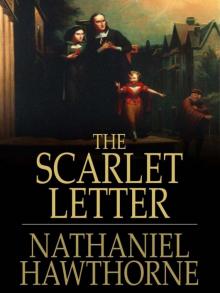 The Scarlet Letter
The Scarlet Letter Young Goodman Brown : By Nathaniel Hawthorne - Illustrated
Young Goodman Brown : By Nathaniel Hawthorne - Illustrated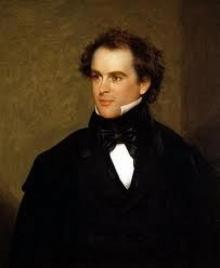 The Birthmark
The Birthmark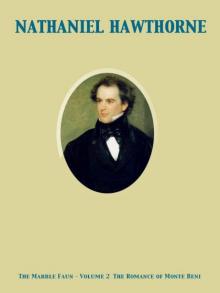 The Marble Faun; Or, The Romance of Monte Beni - Volume 1
The Marble Faun; Or, The Romance of Monte Beni - Volume 1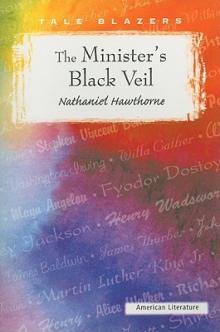 The Minister's Black Veil
The Minister's Black Veil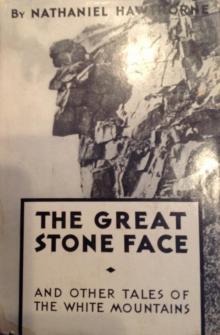 The Great Stone Face, and Other Tales of the White Mountains
The Great Stone Face, and Other Tales of the White Mountains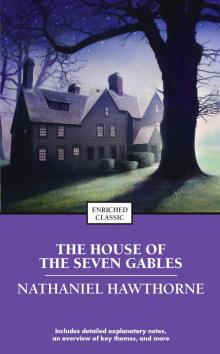 The House of the Seven Gables
The House of the Seven Gables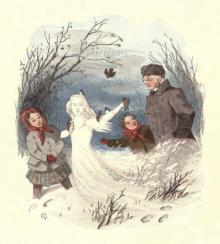 The Snow Image
The Snow Image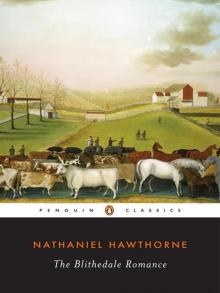 The Blithedale Romance
The Blithedale Romance Rappaccini's Daughter: By Nathaniel Hawthorne - Illustrated
Rappaccini's Daughter: By Nathaniel Hawthorne - Illustrated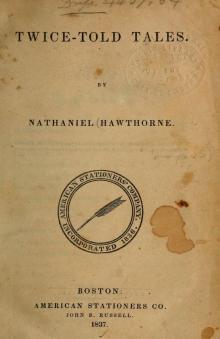 Twice-Told Tales
Twice-Told Tales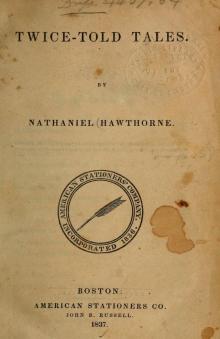 Twice Told Tales
Twice Told Tales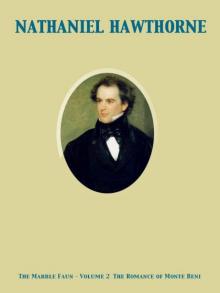 The Marble Faun; Or, The Romance of Monte Beni - Volume 2
The Marble Faun; Or, The Romance of Monte Beni - Volume 2_preview.jpg) Footprints on the Sea-Shore (From Twice Told Tales)
Footprints on the Sea-Shore (From Twice Told Tales)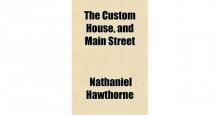 Main Street
Main Street_preview.jpg) The Seven Vagabonds (From Twice Told Tales)
The Seven Vagabonds (From Twice Told Tales) Fanshawe
Fanshawe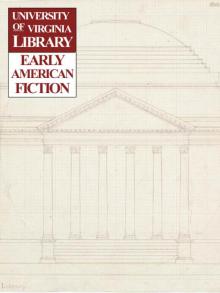 Chippings with a Chisel
Chippings with a Chisel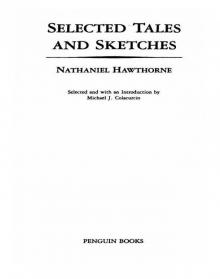 Selected Tales and Sketches
Selected Tales and Sketches Young Goodman Brown
Young Goodman Brown Roger Malvin's Burial
Roger Malvin's Burial The Prophetic Pictures
The Prophetic Pictures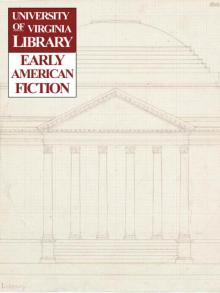 The Village Uncle
The Village Uncle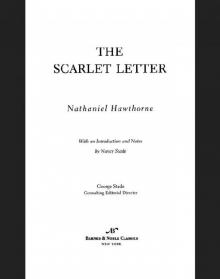 Scarlet Letter (Barnes & Noble Classics Series)
Scarlet Letter (Barnes & Noble Classics Series) The Procession of Life
The Procession of Life Drowne's Wooden Image
Drowne's Wooden Image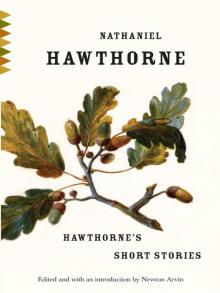 Hawthorne's Short Stories
Hawthorne's Short Stories My Kinsman, Major Molineux
My Kinsman, Major Molineux Legends of the Province House
Legends of the Province House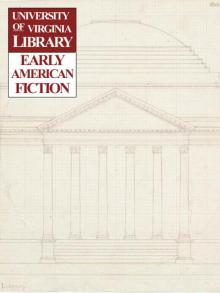 Foot-Prints on the Sea-Shore
Foot-Prints on the Sea-Shore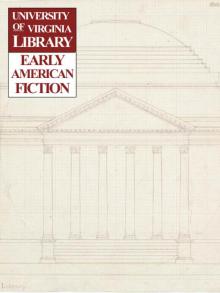 The Haunted Quack
The Haunted Quack Tanglewood Tales
Tanglewood Tales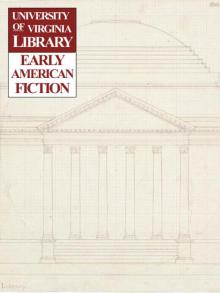 The Seven Vagabonds
The Seven Vagabonds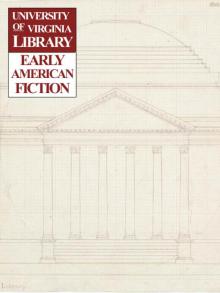 Mosses from an Old Manse, Volume 2
Mosses from an Old Manse, Volume 2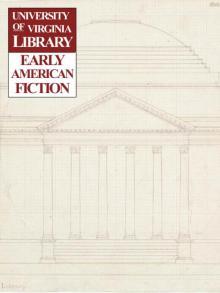 The Canterbury Pilgrims
The Canterbury Pilgrims Wakefield
Wakefield The Gray Champion
The Gray Champion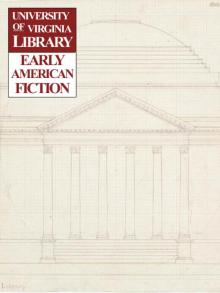 The White Old Maid
The White Old Maid The Snow-Image: A Childish Miracle
The Snow-Image: A Childish Miracle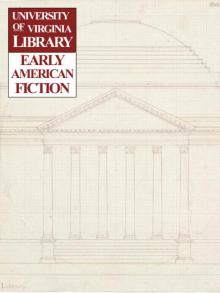 The Gentle Boy
The Gentle Boy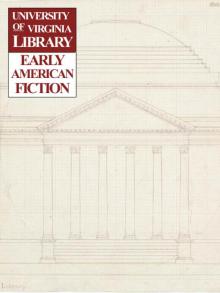 Mr. Higginbotham's Catastrophe
Mr. Higginbotham's Catastrophe![The Threefold Destiny: A Fairy Legend, by Ashley Allen Royce [pseud.] Read online](http://i1.bookreadfree.com/i2/04/10/the_threefold_destiny_a_fairy_legend_by_ashley_allen_royce_pseud__preview.jpg) The Threefold Destiny: A Fairy Legend, by Ashley Allen Royce [pseud.]
The Threefold Destiny: A Fairy Legend, by Ashley Allen Royce [pseud.] Lady Eleanore`s Mantle
Lady Eleanore`s Mantle The Great Carbuncle
The Great Carbuncle The Portable Hawthorne (Penguin Classics)
The Portable Hawthorne (Penguin Classics)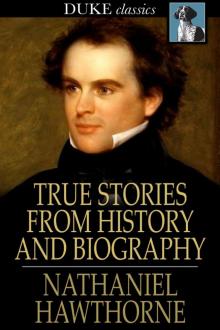 True Stories from History and Biography
True Stories from History and Biography